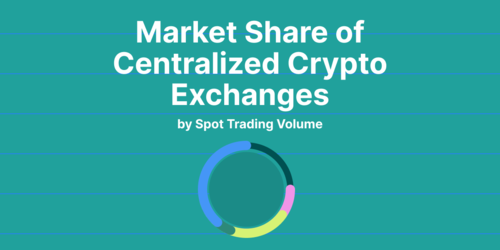Key Takeaways
-
BEP-2, BEP-20, and ERC-20 are common token standards that outline the rules for minting and deploying new tokens.
-
BEP-2 is the token standard for minting and deploying tokens on the Binance Chain.
-
BEP-20 is a token standard for Binance Smart Chain – it’s compatible with BEP-2 and ERC-20 standards.
-
ERC-20 is the technical standard for building and implementing smart contracts on the Ethereum blockchain.

In the the crypto world, each token issued on a blockchain that supports smart contracts or is compatible with the Ethereum Virtual Machine (EVM) follows a guideline known as a token standard. The guideline informs users how to mint, issue, and deploy new tokens using the underlying network. As such, token standards are part of the smart contract standards, which are vital in such networks to keep communication between smart contracts seamless.
Currently, Ethereum is the most common smart contract blockchain. Its developers have created multiple popular token standards for various smart contract applications. The most common standard is the Ethereum Request for Comments (ERC), which exists in different formats like ERC-20, ERC-721, ERC-777, and ERC-1155.
Other than Ethereum, the Binance blockchains—Binance Chain and Binance Smart Chain (BSC) – are also quite popular among the crypto community. They have their own set of token standards, namely BEP-2 and BEP-20.
This article covers the BEP-2 vs. BEP-20 vs. ERC-20 comparison. It defines what each standard is, the top tokens in each standard, and concludes by answering the question, which one should you use?
What is a Token Standard?
Tokens are digital units that live on a blockchain. They often have specific use cases and play roles including:
- Facilitating transactions
- Acting as a store of value
- Enabling digital assets, like in-game currencies
- Facilitating governance processes.
Thousands of new crypto projects each year issue their own tokens, mainly on the Ethereum and BSC networks. For these tokens to be compatible with the underlying chain’s standards, they must follow the network’s token standards. These standards outline the rules for minting and deploying new tokens. Generally, the standards stipulate requirements for:
- The total supply limit of the token
- The issuance processes
- The burning mechanism
- The process for executing transactions.
These standards are meant to help mitigate fraud, technical incompatibilities, and the minting of assets not conforming with the underlying network’s principles. For instance, the rules for total supply and new token issuance can help prevent potential asset value depreciation.
What is BEP-2?
BEP is an abbreviation for Binance Smart Chain Evolution Proposal. BEP-2 is the token standard for minting and deploying tokens on the Binance Chain – Binance’s first blockchain. It stipulates a set of rules assets should abide by to operate in the chain, and it was initially designed for centralized and decentralized exchanges. Besides, BEP-2 is the primary token standard for Binance’s native coin – BNB.
But this standard setup for BNB presents significant limitations for utilizing BEP-2 tokens. Specifically, BEP-2 tokens don’t support smart contacts, which most cryptocurrencies and decentralized applications (dApps) depend on to function. As such, you can only use BEP-2 tokens for paying transaction fees on Binance exchanges. However, you can unlock the utility of BEP-2 tokens by converting them to BEP-20 tokens for use in the DeFi space.
Here are some BEP-2 tokens available on the Binance Chain:
Fantom (FTM)
Fantom is a scalable blockchain infrastructure for DeFi, dApps, and business applications. The Fantom blockchain launched in December 2019 to offer a feasible solution to the blockchain trilemma by balancing scalability, security, and decentralization. Its native token, FTM, facilitates governance, staking, payments, and transaction fees on the ecosystem and has a BEP-2 version.
Bitcoin BEP2 (BTCB)
BTCB is a bitcoin-collateralized stablecoin issued by the Binance exchange. It is fully backed by bitcoin reserves, and it tracks the value of bitcoin. BTCB was designed to bridge Bitcoin and Binance blockchains. It’s important to note that Binance controls ownership of the bitcoin reserves; thus, BTCB is highly centralized.
Binance USD (BUSD)
BUSD is a fiat-collateralized stablecoin launched by Binance and Paxos Standard. Every BUSD token is pegged 1:1 with the US dollar locked in reserves. BUSD strives to offer a more stable crypto alternative for users who want to minimize their exposure to volatility. Although Paxos mints BUSD tokens on the Ethereum network, Binance supports Binance BEP-2 BUSD tokens.
Polkadot (DOT)
Polkadot is a cross-chain protocol that links networks, enabling value and data transfer across previously incompatible blockchains. Besides, it is meant to be fast and scalable. DOT is the native token of Polkadot, and it has a BEP-2 alternative. It facilitates staking and governance of the Polkadot ecosystem.
Cardano (ADA)
Cardano is a Proof-of-Stake (PoS) blockchain based on peer-reviewed and evidence-based techniques. It aims to offer improved security and sustainability to dApps, businesses, and DeFi. ADA powers the Cardano ecosystem, and it supports the BEP-2 standard.
What is BEP-20?
BEP-20 is a token standard for BSC. It’s a multipurpose standard compatible with BEP-2 and ERC-20 standards. This makes BSC easily compatible with the EVM. Besides, it is the token standard for the BNB coin on BSC – BEP-20 standard BNB coins are the native coins for BSC.
Since BEP-20 was invented after the launch of ERC-20, it draws a lot of inspiration from it. As a matter of fact, the BEP-20 standard shares many similarities with ERC-20 and is compatible with Ethereum smart contracts and the EVM. Besides, it’s highly interoperable, facilitating easy swapping of BEP-2 tokens to BEP-20 tokens. BEP-20 and BSC have unlocked opportunities for Binance Chain users to access the rapidly growing dApp landscape. Within the first year of release, BSC emerged as Ethereum’s primary challenger for creating dApps.
Below are the top BEP-20 tokens:
PancakeSwap (CAKE)
PancakeSwap is a decentralized exchange (DEX) for trading BEP-20 tokens on the Binance blockchain. Besides the token swapping feature, it also supports yield farming, Syrup Pools to stake CAKE, a lottery where winners can win CAKE prizes, a prediction market, an NFT marketplace and Profile System, Initial Farm Offerings (IFO), perpetual trading, and community governance.
Safemoon (SFM)
Safemoon is an automated liquidity-generating protocol on a mission to provide “safe” gains via strategies like static rewards, manual token burns, and automatic liquidity trading to avoid dramatic valuation bubbles. SFM runs on BSC and has deflationary characteristics, where half the transaction fees are redistributed to investors and the rest burned.
Cream (CREAM)
Cream consists of a decentralized lending platform and a DEX (Cream Swap), which lives on Ethereum and BSC. Cream users can lend various digital currencies to earn interest. Borrowers can borrow by collateralizing their crypto holdings to receive loans from the liquidity pools. CREAM is the native token of the protocol, which facilitates the governance process.
BurgerCities (BURGER)
Previously BurgerSwap, BurgerCities is a DeFi protocol that integrates DeFi and NFT to build a unique and standardized Web3 metaverse. In BurgerCities, you can participate in daily events, like socializing and gaming. BURGER is the native token for BurgerCities that powers all activities.
SXP (SXP)
SXP, formerly Swipe, is a decentralized protocol that strives to fill the gap between fiat and digital currencies. Its main product offerings include Visa debit cards and a multi-asset web3 wallet, which enables near-instant swaps for crypto, fiat, and stablecoins.
What is ERC-20?
ERC is an abbreviation for Ethereum Request for Comment. ERC-20 is the technical standard for building and implementing smart contracts on Ethereum, and ERC-20 tokens are digital currencies that live on Ethereum and follow the ERC-20 token standard. The Ethereum network was developed for smart contracts – digital agreements programmed to execute automatically when predetermined rules are met. This functionality enables the creation of many types of dApps; hence, many platforms and related tokens are built on the Ethereum network.
The ERC-20 token standard was proposed by Fabin Vogelsteller, one of the co-founders of Ethereum, in 2015 as a method to standardize smart contract tokens on Ethereum. He made the proposal through Ethereum’s GitHub page as an Ethereum Request for Comment. Since it was the 20th comment, it was named ERC-20. The proposal was approved and executed in 2017 as Ethereum Improvement Proposal 20 (EIP-20). But it still maintained its initial name as the submission had gone viral among the Ethereum users.
Below are the top five ERC-20 tokens based on market capitalization:
Tether (USDT)
USDT is a fiat-collateralized stablecoin that tracks the value of the US dollar. It is the most-traded cryptocurrency, as well as the first stablecoin to be launched and the biggest stablecoin by market cap in the entire crypto market. While USDT is also available on Tron, EOS, Liquid, and Algorand, its Ethereum-issued token is the most popular version.
USD Coin (USDC)
USDC describes itself as a fully fiat-collateralized stablecoin, and is also pegged 1:1 with the US dollar. In terms of market capitalization, it is catching up to USDT, with over 30% market share of the stablecoin market.
Find out how USDC differs from USDT.
Binance USD (BUSD)
As mentioned above, BUSD is a fiat-collateralized stablecoin issue by Paxos and Binance, pegged 1:1 with the US dollar. Its ERC-20 version facilitates loans, payments, and other payments on the Ethereum ecosystem.
Dai (DAI)
DAI is issued by the Maker protocol. It’s the first crypto-collateralized stablecoin that tracks the value of the US dollar. Unlike USDT, USDC, and BUSD, DAI collaterals are crypto assets, which are stored in smart contracts instead of centralized custodians.
Learn about how DAI balances supply and demand to maintain a stable price.
Uniswap (UNI)
Uniswap is a DEX that facilitates the smooth swapping of ERC-20 tokens without intermediaries, simply requiring users to connect their web3 wallet to Uniswap. UNI is the native token of Uniswap that enables governance.
Conclusion: Which Token Standard Should You Use?

If you are a crypto user interested in dApps and DeFi at large, the most crucial point to note is that BEP-2, BEP-20, and ERC-20 are token standards their respective chains apply to achieve various purposes. If your wallet supports these standards, the specific transactions are processed in their corresponding blockchains – Binance Chain for BEP-2, BSC for BEP-20, or Ethereum for ERC-20. Though the BEP-2 standard is a good choice for DEX-based crypto trading with lower transaction fees, it doesn’t support smart contracts and is incompatible with EVM.
BEP-20 and ERC-20 both offer access to a wide range of dApps and smart contract tokens, although the latter offers a broader selection of dApps than the former. That said, please take note that the number of dApps mentioned above is not exhaustive as there are additional protocols that are unrecorded. However, the BEP-20 standard offers lower transaction fees and faster processing times than the ERC-20 standard.
Ultimately, choosing which token standard to use depends on your requirements, and whether it is supported by the dApp you wish to interact with. As always, remember to do your own research before interacting with dApps and investing in cryptocurrency.

Josiah is a tech evangelist passionate about helping the world understand Blockchain, Crypto, NFT, DeFi, Tokenization, Fintech, and Web3 concepts. His hobbies are listening to music and playing football. Follow the author on Twitter @TechWriting001





 Or check it out in the app stores
Or check it out in the app stores
